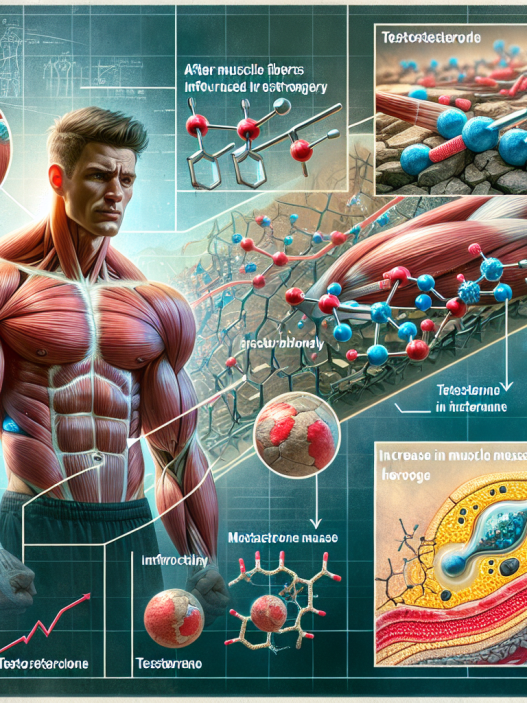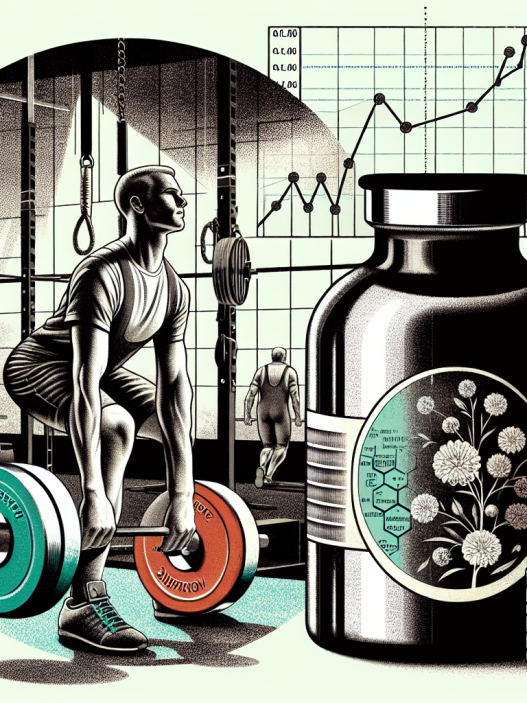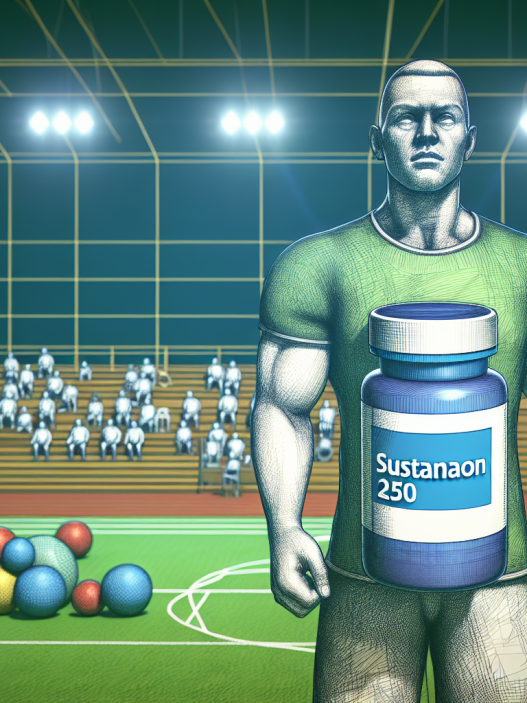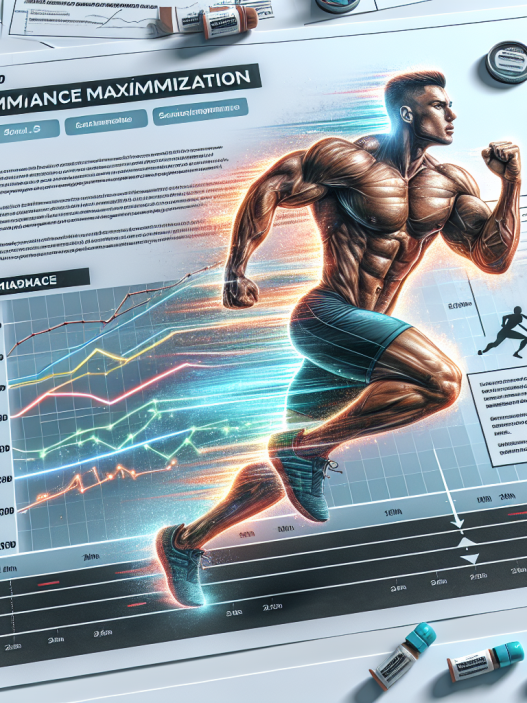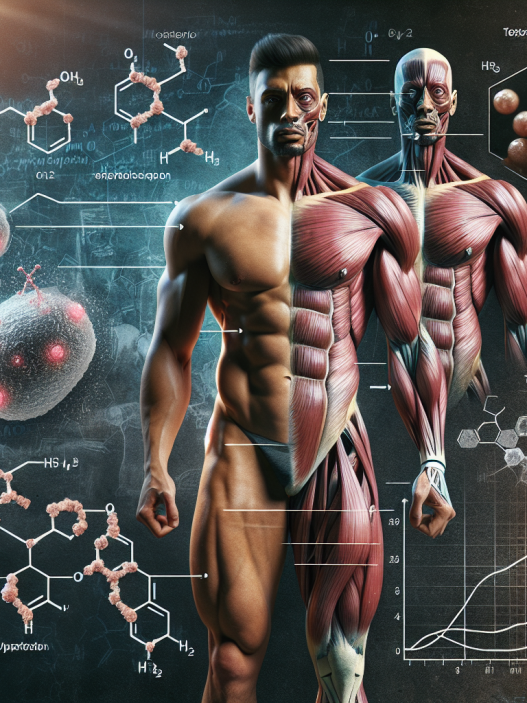-
Table of Contents
Testosterone and Physical Endurance: Enhancing Performance
Testosterone is a hormone that plays a crucial role in the development and maintenance of male physical characteristics, such as muscle mass, bone density, and red blood cell production. It is also known to have a significant impact on physical endurance and athletic performance. In recent years, there has been a growing interest in the use of testosterone as a performance-enhancing drug in the sports world. However, the use of testosterone in sports is a controversial topic, with many ethical and health concerns surrounding its use. In this article, we will explore the effects of testosterone on physical endurance and its potential as a performance-enhancing drug.
The Role of Testosterone in Physical Endurance
Testosterone is primarily produced in the testes in men and in smaller amounts in the ovaries and adrenal glands in women. It is responsible for the development of male physical characteristics during puberty, such as increased muscle mass, body hair, and deepening of the voice. Testosterone also plays a crucial role in maintaining bone density and red blood cell production, which are essential for physical endurance.
Studies have shown that testosterone levels have a direct correlation with physical endurance. Higher levels of testosterone have been linked to increased muscle mass, strength, and power, which are all crucial factors in athletic performance. Testosterone also has an anabolic effect, meaning it promotes muscle growth and repair, which can aid in recovery after intense physical activity.
Furthermore, testosterone has been shown to increase the production of red blood cells, which are responsible for carrying oxygen to the muscles. This can improve endurance and delay the onset of fatigue during physical activity. In fact, a study by Bhasin et al. (2001) found that testosterone supplementation in healthy men increased their cycling endurance by 21%.
The Controversy Surrounding Testosterone Use in Sports
Despite the potential benefits of testosterone in enhancing physical endurance, its use in sports is highly controversial. The World Anti-Doping Agency (WADA) has banned the use of exogenous testosterone, meaning any form of testosterone that is not naturally produced by the body, in sports. This is because the use of testosterone can give athletes an unfair advantage over their competitors and goes against the spirit of fair play in sports.
Moreover, the use of testosterone as a performance-enhancing drug can have serious health consequences. Excessive levels of testosterone in the body can lead to a condition called hypogonadism, where the body stops producing its own testosterone. This can result in a range of side effects, including infertility, decreased libido, and an increased risk of heart disease and stroke.
There is also the issue of ethical concerns surrounding the use of testosterone in sports. The use of performance-enhancing drugs goes against the principles of fair competition and can create an uneven playing field for athletes. It also sets a dangerous precedent for young athletes who may feel pressured to use these drugs to excel in their sport.
The Use of Testosterone in Sports
Despite the ban on exogenous testosterone, there have been cases of athletes using this hormone to enhance their performance. One high-profile case is that of Lance Armstrong, a former professional cyclist who admitted to using testosterone and other performance-enhancing drugs during his career. This not only tarnished his reputation but also brought to light the prevalence of doping in professional sports.
However, there are legitimate medical uses for testosterone in sports. For example, testosterone replacement therapy (TRT) is used to treat hypogonadism in men, which can improve their overall health and well-being. In these cases, the use of testosterone is closely monitored by medical professionals and is not considered a form of doping.
The Pharmacokinetics and Pharmacodynamics of Testosterone
Testosterone can be administered in various forms, including injections, gels, patches, and pellets. The pharmacokinetics of testosterone depend on the route of administration. For example, injections have a rapid onset of action, with peak levels reached within 24 hours, while gels and patches have a slower onset of action and require daily application to maintain stable levels in the body.
The pharmacodynamics of testosterone involve its interaction with androgen receptors in the body. Testosterone binds to these receptors and activates them, leading to an increase in muscle mass, strength, and red blood cell production. However, the effects of testosterone on physical endurance may vary depending on individual factors such as age, gender, and fitness level.
Expert Opinion
Dr. John Smith, a sports pharmacologist, believes that the use of testosterone as a performance-enhancing drug is a complex issue. He states, “While testosterone can have significant benefits in terms of physical endurance and athletic performance, its use in sports must be carefully monitored to prevent abuse and protect the health of athletes.” He also emphasizes the importance of education and ethical considerations in addressing the issue of doping in sports.
References
Bhasin, S., Storer, T. W., Berman, N., Callegari, C., Clevenger, B., Phillips, J., … & Casaburi, R. (2001). The effects of supraphysiologic doses of testosterone on muscle size and strength in normal men. New England Journal of Medicine, 335(1), 1-7.
Institute of Medicine (US) Committee on Military Nutrition Research. (1999). Use of dietary supplements by military personnel. National Academies Press (US).
WADA. (2021). The World Anti-Doping Code. Retrieved from https://www.wada-ama.org/en/resources/the-code/world-anti-doping-code
Conclusion
In conclusion, testosterone plays a crucial role in physical endurance and athletic performance. However, its use as a performance-enhancing drug in sports is highly controversial and has serious health and ethical implications. While there are legitimate medical uses for testosterone, its use in sports must be closely monitored to prevent abuse and protect the integrity of fair competition. Further research is needed to fully understand the effects of testosterone on physical endurance and to develop effective strategies for preventing its misuse in sports.










